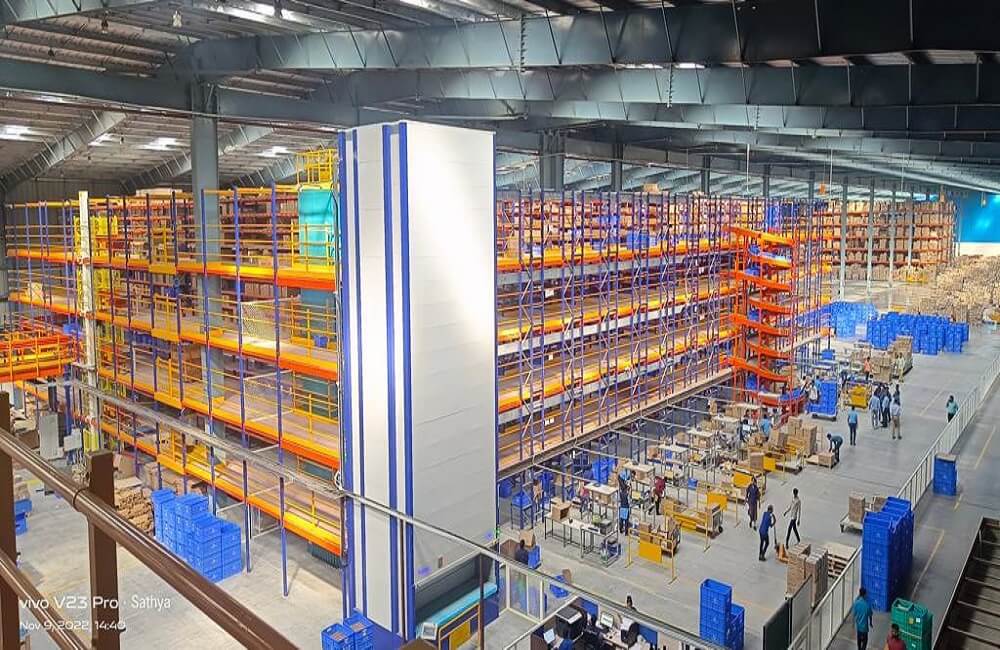The success of enterprises in the global business sector relies heavily on their adeptness in effectively spanning the complex network of logistical initiatives. This includes everything from the procurement of raw materials to the timely delivery of finalised goods to the customer.
Supply Chain Management (SCM) services have emerged as a pivotal force in operational excellence. This symmetry leads to optimised resource utilisation, waste reduction, and streamlined workflows. By skilfully coordinating these elements, SCM services play a crucial role in enhancing efficiency and effectiveness within an organisation’s operations.
Optimising operations: Impact of SCM on production efficiency
In the modern landscape of industrial production, the influence of Supply Chain Management on enhancing production efficiency is profound and multi-faceted.
- One of the pillars of this influence lies in applying lean manufacturing principles, where SCM meticulously evaluates processes, identifies inefficiencies, and implements measures to minimise waste and streamline operations. By adopting such principles, SCM serves as a guiding force, reducing costs and ensuring that resources are utilised judiciously to achieve maximum output.
- Another compelling aspect of SCM’s impact on production efficiency is its role in process optimisation and automation. Through a systematic approach to analysis and incorporation, SCM identifies opportunities to enhance production speed and precision. Automation of specific processes accelerates operations and reduces the potential for errors, leading to more reliable and consistent production output.
- Furthermore, within production quality control, SCM encapsulates the essence of Kaizen – the Japanese philosophy of continuous improvement. SCM strongly emphasises maintaining high-quality standards and adhering to compliance requirements. By continually evaluating and fine-tuning production processes, SCM fosters an environment of perpetual enhancement. Kaizen principles, deeply embedded in supply chain management practices, encourage incremental improvements, resulting in a cumulative positive impact on overall production efficiency and product quality.
SCM’s role in distribution enhancement
Distribution Enhancement emerges as a crucial driver of operational excellence. SCM deploys various strategies to orchestrate distribution operations and amplify efficiency seamlessly.
- Warehouse design and layout optimisation: By meticulously designing warehouse layouts, SCM minimises travel time and optimises available space, leading to a seamless flow of goods and a substantial boost in distribution efficiency.
- Inventory tracking and real-time visibility: An essential facet of SCM’s distribution prowess is the deployment of advanced tracking technologies. These cutting-edge tools grant real-time insights into inventory levels and precise product locations. This heightened visibility empowers organisations to engage in accurate demand forecasting, facilitating proactive decision-making.
- Just-in-time delivery strategies: By harmonising supply with demand, SCM minimises excess inventory while ensuring products are delivered precisely when needed. This reduces holding costs and inventory-related risks, improving cash flow and overall distribution efficiency. Just-in-time strategies epitomise SCM’s ability to create a finely tuned distribution ecosystem that operates with precision and agility.
How will supply chains adapt to future sustainability demands?
Within supply chain management and logistics, the horizon of forthcoming trends is rapidly reshaping the very fabric of the industry. These emergent currents enclose a spectrum of advancements, including accelerated digitisation, data analytics, and the integration of artificial intelligence. Concurrently, a heightened emphasis is being placed upon sustainability, resilience, and the principles of the circular economy, where the imperative to curtail environmental impact and optimise resource allocation is paramount.
In this dynamic environment, supply chain management services take proactive strides to adapt and flourish amid these transformative shifts. These services assume a crucial role in navigating the evolving logistics terrain by instilling eco-friendly practices, fostering robust collaboration across the value chain, and harnessing innovative technologies to bolster transparency and traceability. Through embracing and catalysing these pivotal trends, supply chain management services emerge as the backbone, propelling us toward a future characterised by sustainability, heightened efficiency, and remarkable agility within the global logistics sphere.
(This article is authored by Vivek Juneja, Founder and Managing Director at Varuna Group)



